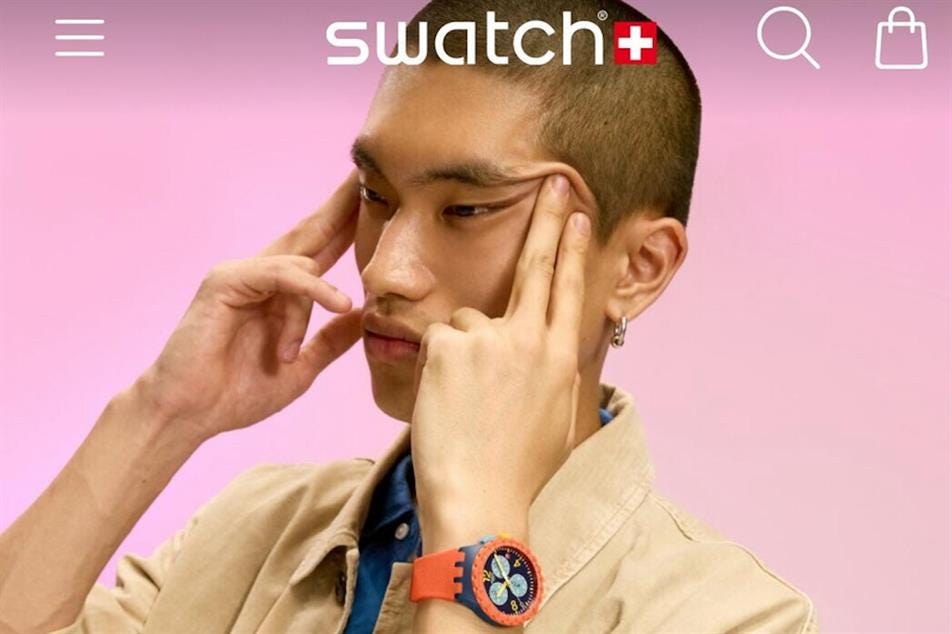Swatch’s “slanted eyes” ad apology falls flat
Swiss watchmaker Swatch apologized on Aug. 16 and pulled a global advertising campaign after a promotional photo of an Asian male model making a “slanted eye” gesture drew condemnation in China.
The Rebel Yellow - Issue #110
A global Swatch ad campaign is facing backlash after a model made a “slanted eye” gesture, with Asian American voices calling the brand’s apology hollow and performative. Meanwhile, President Trump reversed course on Intel CEO Lip-Bu Tan, proposing a $10 billion government stake in the chip giant. In Texas, Asian lawmakers face racist attacks amid GOP redistricting fights. An undocumented Indian truck driver may be deported after a U-turn killed three people in Florida. A New Jersey Thai American man died after being lured by a Meta chatbot, and a Honolulu acid attack suspect was previously a hate crime victim. Plus: Trump vows to fight for Hong Kong media tycoon Jimmy Lai, two more activists gain asylum abroad, and a new report details North Korean slave labor in Russia. Finally, 80% of U.S. students now use AI for schoolwork, and “Freaky Friday’s” director admits to past Asian stereotypes.
Swatch’s apology for “slanted eyes” ad falls flat
Swiss watchmaker Swatch apologized on Aug. 16 and pulled a global advertising campaign after a promotional photo of an Asian male model making a “slanted eye” gesture drew condemnation in China. The image, created for the Swatch Essentials collection, was denounced as a racist stereotype, but the company’s apology was swiftly rejected by many Asian netizens who described it as hollow and dismissive.
In statements on Instagram, Swatch said it had “taken note of the recent concerns regarding the portrayal of a model in images for the Swatch Essentials collection” and confirmed it had “immediately removed all related materials worldwide.” The company added, “We sincerely apologise for any distress or misunderstanding this may have caused.”
Chinese consumers reacted swiftly, with many dismissing Swatch’s apology as insincere. One user wrote, “I’m sorry you feel this way. Not a real apology,” while another added, “Christ, would it hurt to say ‘we made a mistake’ without any follow up words like ‘sorry if you’re offended’?” Some urged boycotts not only of Swatch but also of its other brands, including Omega and Tissot, while others questioned how the campaign was approved in the first place.
Asian American users amplified the backlash across U.S. social platforms. Filipino American film producer Jeremiah Abraham commented on Swatch’s Instagram apology: “How does an ad like this even get approved in 2025? This is what happens when you hire creative agencies and marketers with zero cultural fluency.” New York-based entrepreneur Lulu Tsui urged accountability at multiple levels, writing, “Fire the design agency who proposed this campaign. Fire the marketing agency that went along. Fire your creative director and leadership who approved this campaign. That would be a start.” On TikTok, creator Justin Tom asked pointedly, “Like, what was Swatch thinking? Do they not have people that would know better? I guess not. I can’t wait for the racist to tell me their excuses on how this is not racist to Asians.”
The reaction comes at a sensitive time for Swatch, particularly in light of the influence of Asian American consumers, whose spending power in the U.S. is projected to rise to $1.6 trillion, making them among the most economically influential demographic groups. For Swatch, a rejection of its apology not only threatens its reputation in Greater China, which accounts for more than a quarter of its revenue, but also risks alienating Asian consumers across the U.S.



